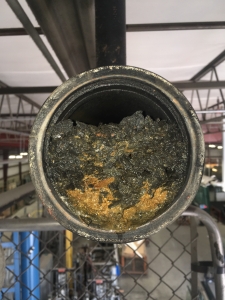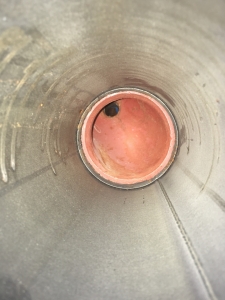Fire Sprinkler Inspections
Having a fire sprinkler or fire suppression system in your building is a great start to providing a safe environment for your clients, employees, and assets. But to really make sure that you are getting the most out of your fire safety system, a business owner must make sure that they are staying up-to-date on regular inspections, testing, and maintenance. Most people could agree that if we don't regularly maintain our heating and cooling systems, they will eventually break down and leave you stranded at the worst possible time such as the dog days of summer or the dead of winter.
Can your business afford to have a failure of a fire safety system in the event of fire? According to FEMA, roughly half of all businesses fail immediately after a disaster such as fire. Could your business survive if your inventory or your building was destroyed by fire?
If you are like most brick-and-mortar businesses, you have regular visits by the local fire department inspectors that require you to have your fire safety systems inspected. Your insurance carrier may even require you to have a "main drain test" of your sprinkler system. Let's take a look at some of these requirements so we can better understand as business owners the costs and implications of these tests and inspections of our fire safety systems.
NFPA 25 Standard for the Inspection, Testing, and Maintenance of Water-Based Fire Sprinkler Systems provides the guidelines that are enforced by local fire departments as well as insurance companies. Valiant's technicians are specially trained and certified to know and understand these codes and inspect and test your fire systems to make sure that they comply with the codes. A routine inspection consists of the following:
- Inspect for physical signs of corrosion or damage to pipes, fittings, hangers, sprinkler, valves, alarm switches, and any other components that make up a sprinkler system.
- Exercise all control valves to make sure that they operate and provide leak free seals.
- Test all alarm and supervisory switches to make sure that they are reporting to the fire alarm panel.
- Perform waterflow alarm testing to simulate a fire in the building and verify that the fire alarm panel receives an alarm signal.
- Perform a main drain test to verify that adequate water flow rates are being supplied to the fire sprinkler system.
- Verify that no changes have been made to the building that would impair the sprinkler systems ability to suppress fire.
- Check the operation of air compressors or other related equipment.
These tests and inspections are the foundation of ensuring the preparedness of your fire safety system, but there is still more. Every 5 years, there are additional inspections above and beyond those annual requirements listed above. 5 Year tests and inspections are more intrusive and dig deeper into making sure there is nothing INSIDE the pipes that can impair your safety systems. These include:
- Fire department connection hydrostatic tests, where the fire department piping is pressure tested.
- Internal inspections, where the pipe is opened at different points of the system to check for the excessive build-up of scale, sediment, or other debris.
- Flushing, which is the removal of excess scale, sediment, or other debris by flowing water through the pipes and out to a drain or atmosphere.
- Standpipe flow testing, where water is flowed through hose valves to verify that the system can still deliver the volume of water it was designed for.
- Gauge replacement, where outdated gauges are replaced with new or calibrated gauges.
- Sprinkler head replacement or sample sprinkler testing, where it is confirmed that older sprinklers can still operate as designed and tested during manufacturing.
5-Year internal examinations are the most quoted additional inspections by our team, and for good reason. Check out the images below; which pipe would you rather have protecting your safety and your business?
These are just a few of the extra code requirements that are necessary for your fire sprinkler system to operate properly that our certified technicians can do for you and your business. If you are not sure that your business could survive a fire, doesn't it make sense to make sure that your fire safety systems are operating at peak performance? Visit https://www.valiantsecurity.org/fire-alarms-and-systems/fire-sprinklers-and-pumps.html to learn more.
Be prepared, be Valiant.




